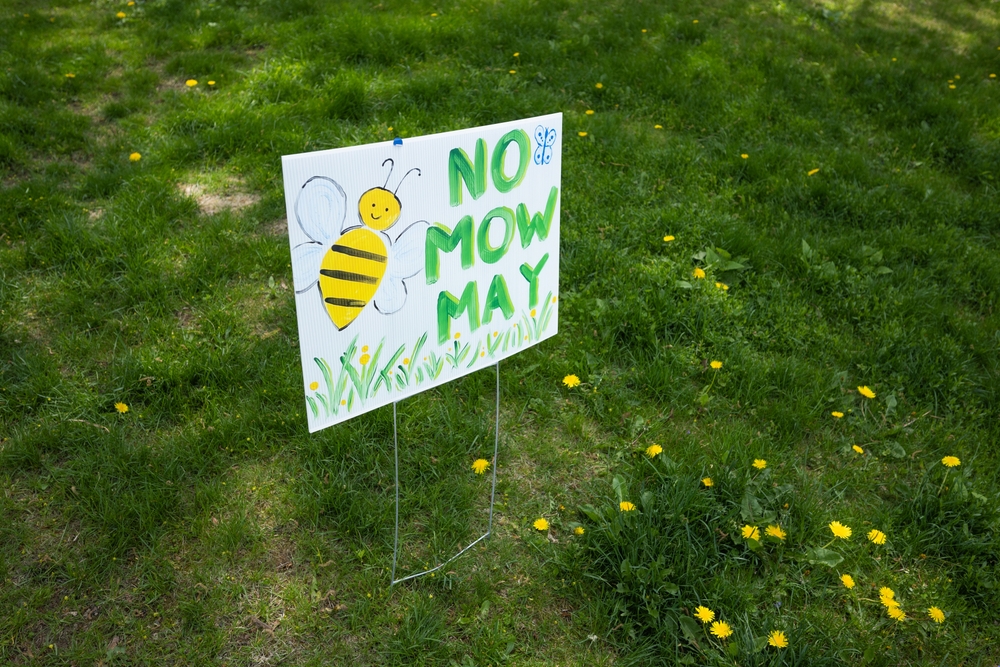The candidates for the category ‘The best organic product’
Tea
The organic bonus
At the age of 27, Kiran Tawadey obtained certification for an organic tea plantation in Darjeeling, India. This was on land where a family friend and third-generation tea planter had been refusing for years to use chemicals, because they were said to cause illness among plantation workers. It became the first recognized organic tea plantation in India. Why should tea be organic? Tawadey: “After the harvest, tea leaves are never washed as is fruit, for example. In other words, everything that is sprayed on the tea plants, ultimately ends up in your cup.”
Hampstead Tea, named after the London district where she moved with her family, pays the 1,600 tea pickers in Darjeeling a salary comparable to that of the other plantations, but her workers get an annual bonus. The proof of good working conditions: while strikes of the local militant Gurkha population are the order of the day on other plantations, the Hampstead Tea workers have never gone on strike.
Available in: England, Finland, France, Italy, Japan, the Netherlands, Norway and the United States
URL: target=’_blank’>www.hampsteadtea.com
Sanitary products
Protection for women
What all is in the average tampon? How safe are sanitary napkins? Important questions because few products are so close to a woman’s body. Many toxic chemicals are typically used in producing the cotton and rayon for these sanitary products. Not only that, but they are bleached and contain artificial additives.
All this potential danger to women gave Susie Hewson the idea for an alternative. She started a company Natracare, which has been manufacturing the first tampons made from 100% organic certified cotton since 1989 and the first sanitary napkins from biodegradable materials. These products are also good news for the environment. The synthetic materials in conventional sanitary products cause numerous environmental problems. Each year, women throw away 45 billion sanitary products worldwide, often straight into the toilet—a problem Natracare’s natural and organic alternatives can help remedy.
Available in: Austria, Belgium, Canada, Croatia, Cyprus, Denmark, Germany, Finland, France, Greece, Hungary, Iceland, Ireland, Italy, Latvia, Malta, the Netherlands, Norway, Portugal, Spain and the United States
URL: www.natracare.com
Soft drinks
Nice and refreshing
It tastes a lot like orange soda, but contains no sugar, artificial flavors, or artificial colors. What is it? Ekoland’s new organic soft drink Dubble Bubble. This particular flavor, orange mandarin, is made from fruit grown in Israel. Ekoland’s two other flavors: raspberry black currant (containing wild raspberries and blackberries from Romania) and tropical (a blend of mango, pineapple and passion fruit from Brazil). The carbonated soft drinks are a sparkling addition to the grocery shelves. Dubble Bubble contains 10-12% pure fruit juice, is sweetened with grape juice and mixed with pure mineral water.
Available in: Belgium and the Netherlands
URL: www.natudis.nl.
Salt
The ocean on your table
For ages, the best salt in the world has been harvested from the Mediterranean Sea and the Atlantic Ocean. A kind of film forms on the surface of the water, the so-called fleur de sel. Each day, this thin layer is manually removed before it sinks to the bottom in a rather time-consuming process. For every 100 square metres (4,300 square yards) of water, only three kilos (six-and-a-half pounds) of salt are produced. When the water evaporates, the salt crystallizes. And so it has been done for thousands of years.
Then came refined salt, which reduces most of the minerals found in sea salt to levels that our body can barely absorb. As a result, excess salt remains in our bodies, and then attracts water and settles into our muscles and onto our bones – which can lead to health problems. The solution: back to unrefined salt.
That is the specialty of a company run by Rui Neves Dias in Tavira, on the southern coast of Portugal. “It’s actually very simple,” Neves Dias explains. “For salt you only need sea, sun and wind. There’s plenty of that here.” Every day the exposed layers of salt crystals are carefully removed from the surface of the sea, then dried in the sun before they’re packaged and sold under the brand name Flos Salis. The salt, which crumbles between your fingers and melts on your tongue, can be used as table salt or for salads, meat and fish.
Neves Dias’ aim to mine salt the traditional way is more than a nostalgic desire to hang on to tradition. Neves Dias wants to prove that it’s still possible to offer the authentic taste and color of sea salt. And he takes pride each time his salt passes with flying colors the annual tests of Nature %amp% Progrès, the European mark for “exceptional quality and purity”. This proves Flos Salis is free of chemical substances like metal and nitrates.
Neves Dias’ family has been mining salt in the region for 120 years. He’s never wanted to do anything else. “This is my hobby,” he says. “It’s never been about work. To earn money, I’ve only done what I enjoy.”
Available in: Austria, Denmark, Germany, Portugal, Sweden and the United States
URL: www.flor-de-sal.com.
Pasta
A pioneer in keeping organic organic
Eden Foods is a pioneer. During the 1960s—when many U.S. farmers thought nothing of heaping more and more chemicals on their fields—Eden Foods tirelessly promoted organic food production as a healthier and environmentally safe alternative. And when this kind of farming became more popular, the Michigan-based whole foods company decided it was time for a way to make sure that organic food is really organic. Studying Europe’s certification systems, a working group from Eden Foods came home to lobby the state of Michigan to lobby for an independent assessment of organic production. And now the company is leading the way in opposing large food corporations’ efforts to relax organic food standards. According to Eden Foods, these companies are trying to move in on the expanding organic foods market without committing themselves to true nature-friendly agriculture.
Among Eden Foods overwhelming selection of products—olive oil, soymilk, rice, beans, tea, potato chips, bottled water and more—whole-grain pasta is a favorite. Recently the company added spirali to its pasta offerings, which is made according to traditional methods using Italian machines.
Available in: the United States
URL: www.edenfoods.com
Jam
Success out of the ashes of civil war
Bosnia-Herzegovina would not seem the most likely place to produce top-quality organic jam, yet it’s exactly where Vegafruit creates prized jam, marmalade and canned fruit. The company was set up in 1994, at the height of the civil war in the former Yugoslavia because its founders had seen a study indicating that soil and water in Bosnia-Herzegovina was six times less polluted than in the more economically developed countries of Western Europe. They figured this would help persuade local farmers to shift to a more nature-friendly method of agriculture. Vegafruit continues to receive official certification for organic production of an increasing range of products: the first company in Bosnia-Herzegovina with that status.
Available in: Austria, Bosnia-Herzegovina, Canada, Denmark, England, France, Germany, the United States and Yugoslavia
URL: www.vegafruit.com.ba
Water
There is life after 1300°C
How EM works is still a mystery to me. But here’s what it does.
EM, which stands for “effective microorganisms”, is the name of a new Japanese technology that instills anti-oxidizing and regenerative qualities in a variety of products used in agriculture, horticulture, cattle breeding, waste disposal and health care. And now there’s also EM ceramics. EM microorganisms are baked into pottery, and while it is supposedly scientifically impossible for living organisms to survive being baked at 1300 degrees Celsius, they can still be seen alive and kicking under a microscope. Sufficiently so that they transmit electromagnetic vibrations.
Thanks to EM ceramics, the water you drink can be given a vital life force. Water—which, as is known in homeopathy, is an effective carrier of subtle vibrations—absorbs the healthy, regenerative qualities from EM and passes it on to those consuming it.
Regardless of the how and why, it works. Put a piece of EM pottery in a jug of water, keep it there for a couple of days and the water becomes softer and tastes better. And it is apparently very healthy.
Cosmetics
Natural beauty
Aubrey Hampton was nine when his mother, a grocer, taught him how to make natural cosmetics. Following in her footsteps, Hampton became a passionate natural chemist. Since setting up his company, Aubrey Organics, in 1967, Hampton has created over 200 different types of natural skin and hair products.
A dedicated animal rights activist, Hampton makes sure not a single ingredient in his products is tested on animals. And while the U.S.-based company has expanded into a successful multinational with annual sales of millions of dollars, Hampton still devises the formulas for the cosmetics and supervises the production process from start to finish. Aubrey Organics beauty products are made by hand. Packaging is recyclable and recycled paper is used for all printed material.
Hampton has introduced an impressive array of new natural, organically certified, ingredients into the cosmetic world. The chemist brought ingredients like jojoba oil, rosa mosqueta oil and green tea from around the world to the United States and was the first to integrate them into his products.
Available in: Australia, Canada, China, Germany, Great Britain, Ireland, Japan, the Netherlands, the Philippines, Singapore, Suriname, Taiwan and the United States
URL: www.aubrey-organics.com
Cola
More real than “the real thing”
Whole Earth Foods has come up with an alternative that tastes much better than “the real thing”. Besides mineral water, the drink contains organic corn syrup, organic apple juice, organic lemon juice, malt extract, natural flavors and cola nut extract. Whole Earth Foods also has five other flavors, including an orange soda that’s much tastier than any Fanta you can imagine.
URL: www.wholeearthfoods.com.
Bread
Bread can taste this good
Ok, his company isn’t a multinational, so his products aren’t available beyond Rotterdam. But we enjoy his bread every lunchtime up in Ode’s attic office, so we figure Menno ‘t Hoen deserves an honorable mention in our survey. ‘t Hoen understands the art of flour, water and salt the way only the French seem to—although it’s becoming ever tougher for to find bread made in the traditional way in France. This, in an era of so-called “boulangerie françaises” that are springing up all over the world selling poor excuses for the French baguette. ‘t Hoen received intensive training at the traditional baker’s institute in Rouen. And he has now introduced the secrets of tasty bread to the Netherlands, a land where bread is traditionally shipped from the factory in plastic bags and stored for hours before being taken home to make sandwiches.
‘t Hoen imports his flour from a small, stone-ground mill on the Loire (where the sun shines longer, which ensures a higher protein content). He then bakes it in his Rotterdam bakery, Dupain Boulangerie Artisanale, a stone “hot water oven”. The bread makes its way to the better local caterers and restaurants, including the three-star (Michelen guide) Parkheuvel.
As ‘t Hoen himself says, “I’m looking for the taste, the archetype of bread. No poisons. No so-called flavor enhancers. No seeds. For the archetype of bread you only need flour, water and salt.”
Available in: the Netherlands
URL: www.dupain.nl(only in Dutch)











